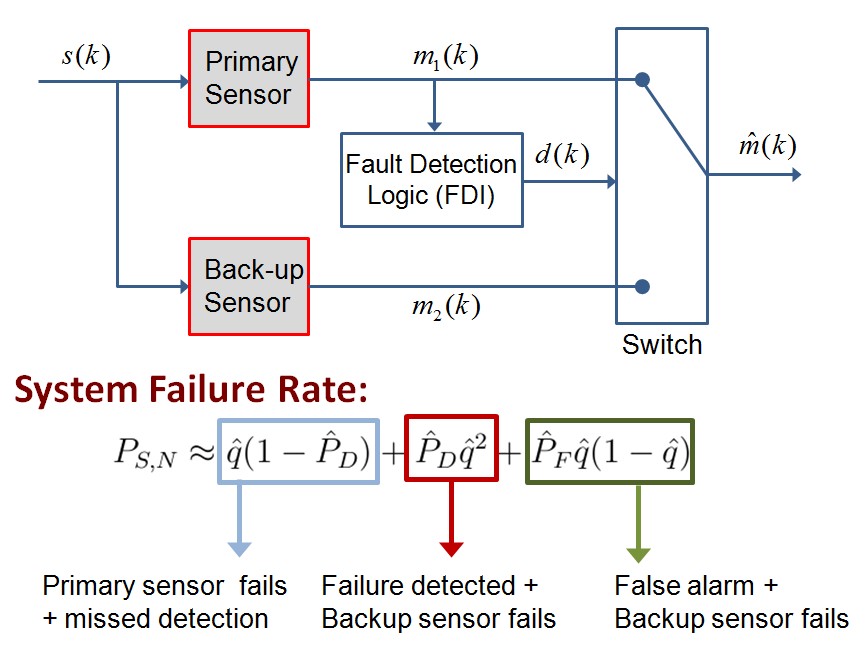Safety Critical Systems (Publications)


Funding: NASA, NSF
Design of safety critical systems using analytical redundancy: The objective of this research is to create tools to manage uncertainty in the design and certification process of safety-critical aviation systems. The research focuses on probabilistic techniques to specify system-level requirements and bound the performance of dynamical components. These will reduce the design costs associated with complex aviation systems consisting of tightly integrated components produced by many independent engineering organizations. This research will lead to a significant reduction in the costs and time required for fielding new aviation systems. This will enable, for example, the safe and rapid implementation of next generation air traffic control systems that have the potential of tripling airspace capacity with no reduction in safety. The proposed methods are also applicable to other complex systems including smart power grids and automated highways.
Graduate Student: Raghu Venkataraman (Publications)
Analysis of Model-based Fault Detection Algorithms: Commercial aircraft are extremely reliable with flight control systems certified to achieve fewer than one catastrophic failure every billion hours. These systems achieve reliability almost exclusively using redundant physical components. Analytical (model-based) redundancy is an alternative approach that has the potential to reduce system size and weight. The objective of this research is to develop the analysis tools required to answer the following question: Do analytically redundant designs improve the overall system reliability and, if so, by how much? Results thus far include tools for an extended fault tree analysis that incorporates algorithmic failures in addition to hardware component failures. Moreover, theoretical bounds have been derived for the false alarm probability of an FDI system with time-correlated residuals.
Graduate Student: Bin Hu (Publications)
Last Modified: 2016-05-09 at 15:42:45 -- this is in International Standard Date and Time Notation